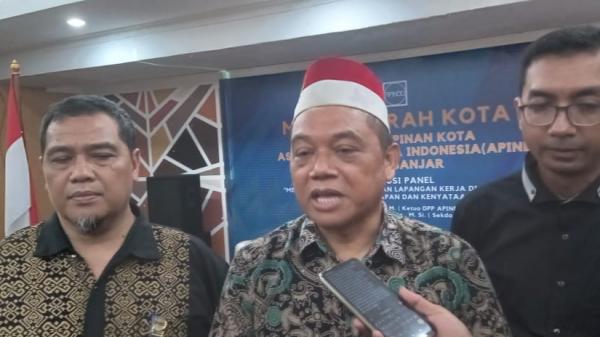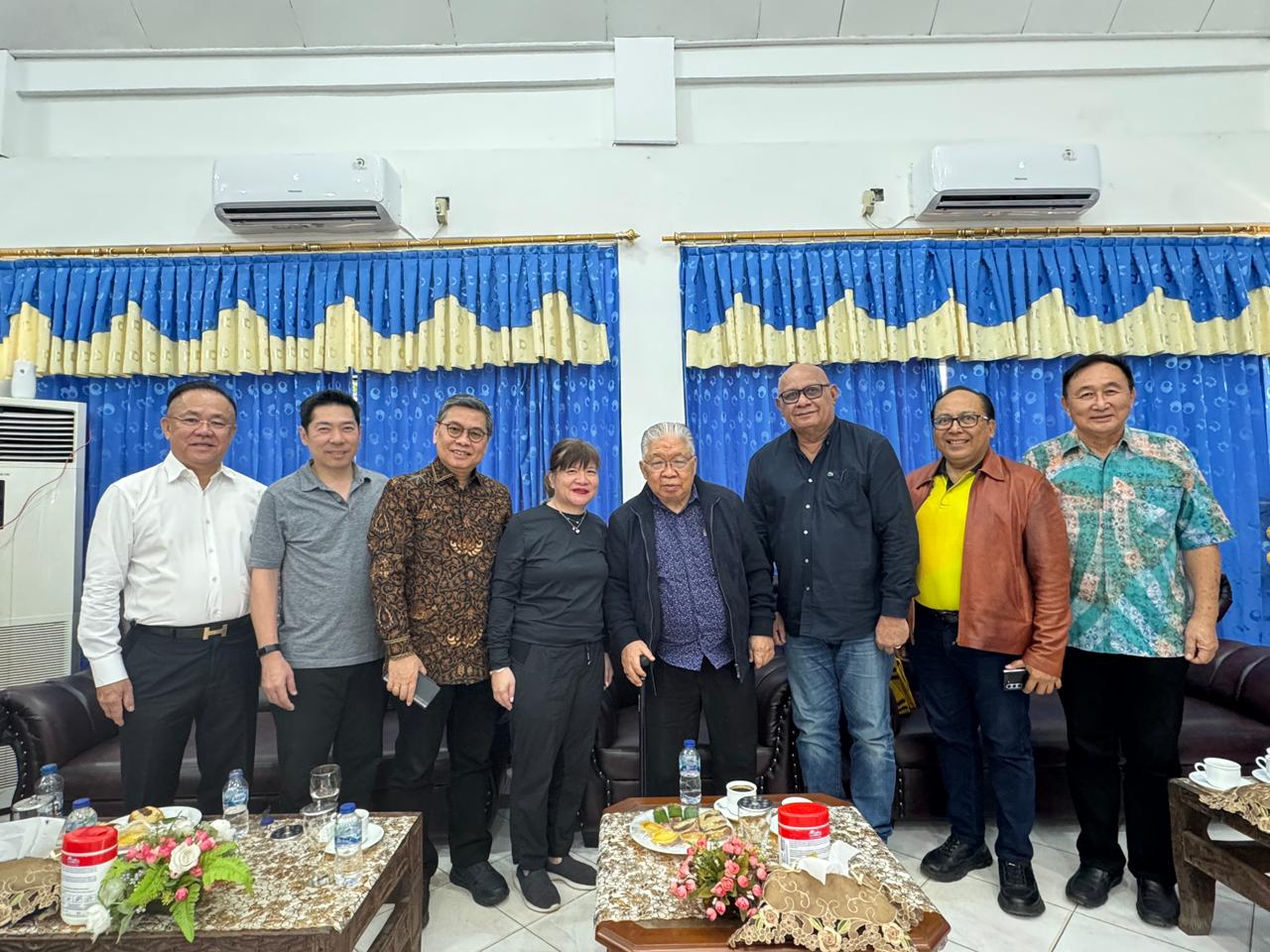Minister of Manpower Ida Fauziyah: APINDO Plays a Role in Reducing Unemployment
Friday, 30 August 2024The Minister of Manpower of Indonesia, Ida Fauziyah, expressed her appreciation for the role of employers in reducing the unemployment rate in Indonesia.
Data from the Central Statistics Agency (BPS) as of February 2024 shows that unemployment in Indonesia has decreased by 4.8 percent. According to her, this is the best achievement in the last 10 years.
“This achievement is not solely the work of the Ministry of Manpower, but also the role of employers affiliated with APINDO, as one of the key stakeholders,” said Ida during her keynote speech at APINDO's National Leadership Meeting (Rakerkonas) at Samator Novotel East Hotel on Thursday (August 29, 2024).
Other BPS data presented by the Mojokerto-born minister highlighted the current employment conditions in Indonesia. So far, 53.86 percent of Indonesian workers have only completed middle school or lower education, while 59.17 percent of the population still works in the informal sector, and 12.11 million people are underemployed.
A significant challenge remains the high unemployment rate in urban areas. According to the BPS data presented by Ida Fauziyah, urban unemployment stands at 5.89 percent out of the 7 million job seekers.
“The focus of concern is the shift in the strategic environment. Digitalization has changed work methods and made employment relationships and work schedules more flexible. Some old jobs have disappeared, but new jobs have emerged,” she added.
Digitalization presents both opportunities and challenges as Indonesia prepares for its Golden Era in 2045, which will be led by Generation Z. Moreover, technological advancements allow people to find work from various parts of the world while based in Indonesia, but it also requires significant skills.
Ida also emphasized that the synergy between the government and employers must be maintained as a fundamental aspect to ensure business continuity from the national to the regional levels.
She noted that APINDO has played a role in moderating labor issues, particularly by supporting the economy through job creation.
“I am pleased to be here and to witness the general improvement in Indonesia’s employment conditions. Alhamdulillah, the situation has improved. We have faced difficult times, like during the COVID-19 pandemic. While other countries were not as fortunate, Indonesia managed to navigate it successfully,” she said.
The XXXIII Rakerkonas in Surabaya also resulted in a Memorandum of Understanding (MoU) between the Ministry of Manpower and APINDO. The agreement covers the acceleration of the Wage Scale Structure (SUSU) implementation, Pancasila Industrial Relations in accordance with Minister of Manpower Regulation No. 76/2024, the Occupational Health and Safety Committee (K3), job vacancy information, and apprenticeship programs.
The second day of the Rakerkonas also featured an engaging dialogue. Burhanuddin Abdullah, Chairman of the Advisory Board of the Indonesia Forward Coalition, acknowledged the private sector’s role in building Indonesia.
“The next government is optimistic that economic growth will reach 8 percent. This is not just talk. In President Soeharto’s era (in 1996), it was achieved, so it is possible in Prabowo’s era as well. Therefore, synergy with the private sector is crucial,” he emphasized.
In his presentation, Burhanuddin revealed that Indonesia’s economic growth between 2013 and 2023 averaged around 5 percent. He also pointed out that the industrial sector has not changed much over the past decade.
This situation, he said, reflects that Indonesia’s economic structure is stagnant. The lack of export product diversification and reliance on raw commodity exports have contributed to the nation's macroeconomic challenges.
However, the 8 percent growth target cannot ignore geopolitics, geoeconomic fragmentation, China’s economic slowdown, the strengthening U.S. dollar, high interest rates in developed countries, and fiscal tightening in advanced economies.
“Collaboration with the private sector is essential to support the government's programs in the next period. The incoming government has work programs that include Pancasila Economics, the Eight Asta Cita, Eight Best Rapid Results Programs, and 17 Priority Programs,” Burhanuddin explained.
Shinta Widjaja Kamdani, Chairman of APINDO, acknowledged that the organization’s tasks would become more challenging in the future. APINDO will need to provide recommendations in a roadmap to refine policies for the new government.
“Our tasks will be even more demanding moving forward because we must provide an economic roadmap recommendation to the elected president. This (Rakerkonas) is where we need to strengthen strategic partnerships, involving both the private sector and the government,” Shinta said.
The strong synergy between the government and businesses has been demonstrated through cooperation between APINDO and the Ministry of Manpower during the XXXIII Rakerkonas. The organization will continue to address labor issues from the national to regional levels.
According to Shinta, this synergy is broad and flexible, aimed at boosting the economy by creating jobs, increasing productivity through Occupational Health and Safety (K3), and enhancing human resource skills.
source : https://kanalsatu.com/id/post/63891/menaker-ida-fauziyah---apindo-turut-berperan-dalam-penurunan-pengangguran









